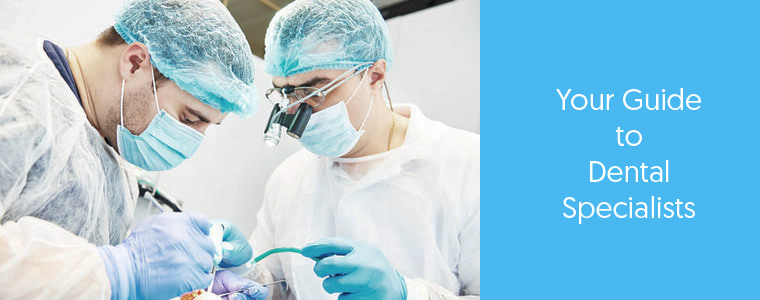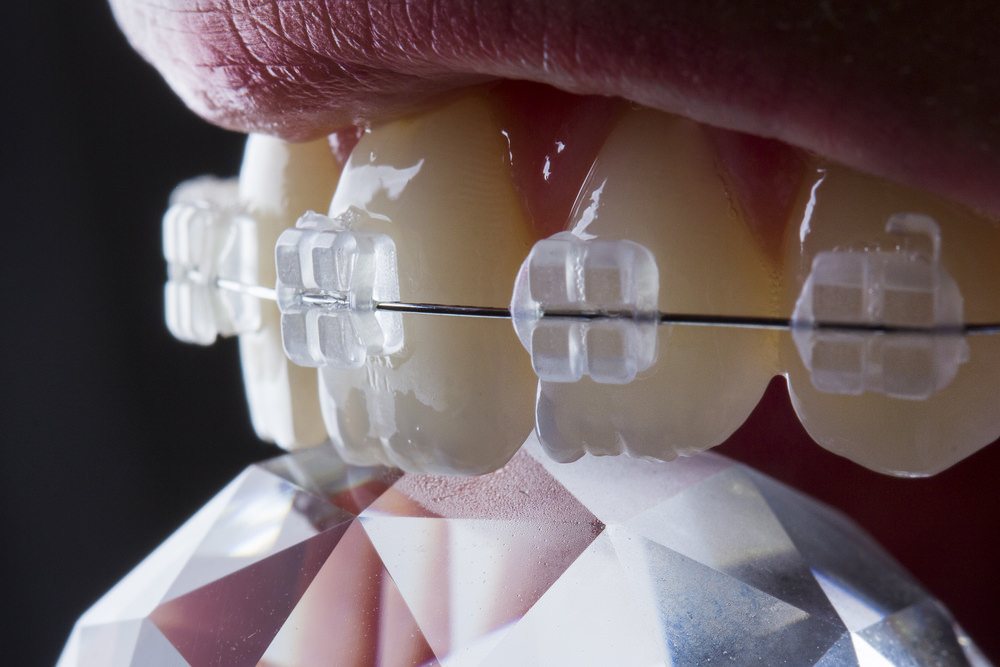Specialist Dentistry – What You Need to Know
Specialist Dentists are Dentists who have undertaken additional specialised postgraduate studies for their intended specialty, on top of their dentistry degree.
So how do you know when is it necessary for you to see a specialist Dentist instead of your general Dentist?
A specialist Dentist has an increased skill set and level of knowledge in one particular area of Dentistry only, and as such, they are no longer allowed to perform general Dentistry.
Your general Dentist is able to perform all the same treatments as a specialist Dentist, however, they may have not completed the extra-curricular studies in order to be registered as a specialist Dentist.
Still confused? Fair enough.
In this article, we explain the differences between:
- A Specialist Dentist and a General Dentist
- The different types of specialist Dentists
- Exactly when it is necessary for you to visit a specialist Dentist
- And if so, how to go about getting the treatment you require.
What makes a Specialist Dentist Different than a General Dentist?
A general Dentist is able to perform all the same treatments as a specialist Dentist.
However, a general Dentist may not have necessarily performed the extra-curricular course of study required for them to be registered in the role of a specialist.
So, regardless of how long your Dentist has been performing all of the Dental procedures – and they may have been performing them for 25 years or more – they will not be registered as a specialist in any particular area of Dentistry.
Your specialist, however, is a specialist in one particular area of Dentistry only, and they do not perform general Dentistry.
That’s because, according to regulations by the Dental Board of Australia, with whom they must be registered with to be qualified as a specialist, once they have lodged themselves as a specialist, they can no longer perform general Dentistry.
Thus, being a specialist limits what they are able to do in their career as a Dentist.
However, their charges do increase due to their skill set, the studies they have done, the depth of knowledge they have gained and the level of commitment that was required for them to qualify as a specialist.
What are the Specialists within the Dental Field?
There are 6 specialists within the Dental industry. They are;
- Orthodontists – These specialists are qualified to diagnose and correct bites, occlusion and alignment problems, and straighten teeth, including treating crooked, overlapping and overcrowded teeth.
- Endodontists – These specialists study the structure, function and diseases of your teeth, focusing mostly on your dental pulp, root and root tissues. This gives them the knowledge to perform all the root canals.
- Prosthodontists – These specialists assist in the restoration and replacement of your teeth by performing procedures such as crowns and bridges.
- Implant surgeons (also known as oral surgeons or implantologists) – These specialists also assist in restoring and replacing your teeth by using dental implants.
- Periodontists – These specialists are the gum surgeons, who prevent, diagnose and treat diseases and disorders affecting your gums, as well as the bones supporting your teeth.
- Children’s specialists – Otherwise known as paediatric Dentists’, these specialists focus on preventing and treating problems in children, as well as providing dental care information for parents.
What are the Cost Differences between a General Dentist and a Specialist Dentist?
With a specialist Dentist, you are paying for their skillset and their high level of knowledge in one area only.
With a general Dentist, you are paying for their years of experience throughout the entire field of work.

A general Dentist with many years of experience
You will find that, if you visit a specialist Dentist, you will pay roughly double that of what you would if you go and see a specialist Dentist for the same category.
This can increase to up to 100% in price depending on a lot of things, including the Dentist themselves, their location, the rent they are paying, if they are a corporate Dentist or belong to a health fund, the amount of staff they have, their economic circumstances, and more.
But expect to pay at least double the price for the same procedure at a specialist Dentist than you would at a general Dentist.
Will a General Dentist Refer you to a Specialist Dentist?
Yes, there is a possibility a general Dentist may have to refer you to a specialist Dentist.
If a general Dentist runs into any issues whilst performing their procedure, you may find that they will refer you to see a specialist Dentist, just as a Doctor would refer you to see a specialist in their field of work.
The Dentist will have a list of specialists that they know and trust, whose work they have seen, and they know will take care of you as a patient.
Thus, you can rest assured that, if necessary, they will send you to the best possible specialist Dentist available in your area.
What Does it Require to Become a Specialist Dentist?
The requirements behind becoming a specialist Dentist are;
- Being a registered healthcare practitioner
- Having completed two years of general Dental work – this helps gain an understanding of the requirements on how to become a General Dentist
- Having completed the necessary educational requirements for a dental specialist – usually a minimum of three years full time formal, postgraduate, university-based studies for your intended specialty (i.e. Orthodontics, Periodontics, etc.)
- A registration with the Dental Board of Australia once their qualification has been achieved – this also means no further general Dental work can be completed
When Should I Choose to See a Specialist Dentist instead of a General Dentist?
Your general Dentist can perform all of the same treatments as a specialist Dentist, and they are generally the right professional for you to visit for your regular check-up or any general dental treatment that you require.
Thus, a general Dentist is the first and best person for you to call for any problems you are having with your teeth or mouth.
If your problems or procedures begin to become more complicated, then the time may come for you to visit a specialist Dentist.
Although referrals for specialists Dentists are not a necessity, your Dentist can give you a referral for the best specialist Dentist in your area, to guide you in the direction to the most trusted person for you to see for any issue you are having.
Other things to consider, before you decide who to visit if you are having a problem with your mouth or teeth, include;
- Does your general Dentist have the necessary training for the procedure in which you require?
- How much experience in the procedure does your general Dentist have in comparison to a specialist Dentist?
Please remember that visiting a specialist Dentist is a far more costly procedure, so if you feel comfortable with the knowledge of your general Dentist, continue to visit them.
Feel safe knowing that they will give you a referral to a specialist Dentist if for any reason an issue arises, and they cannot perform the work that is required.
Conclusion
The main difference between a General Dentist and a specialist Dentist are the years behind their study – in Australia, a dentistry degree is generally four to five years long.
After completing this Bachelor’s Degree, prior to being able to practice as a general Dentist, it is a legal requirement that one must register with the Dental Board of Australia.
However, the Dentist can also choose to continue their studies, which usually takes a minimum of three years, in their chosen field.
After qualifying in their field, they can register with the Dental Board of Australia as a specialist Dentist – an orthodontist, an endodontist, a prosthodontist, an implant surgeon (also known as an oral surgeon or implantologist), a periodontist, or a children’s specialist (also known as a paediatric specialist).
You will find your general Dentist is able to perform all the same work as a specialist Dentist, they just do not have the same skillset, or depth of knowledge in a certain field of Dentistry, due to the years of study that was done by the specialist Dentist.
A specialist Dentist is able to charge more for their services, as you are paying for their skillset and high level of knowledge in one area only.
However, the specialist Dentist is no longer able to complete general Dentistry – their career in what they are able to do as a Dentist has been exposed to limitations.
Your general Dentist tends to have many years of experience behind them, they are generally the right professional for you to visit for your regular check-up or any general dental treatment that you require.
You can rest assured in the fact that this will be far less costly than visiting a specialist Dentist, and if they do run into any issues whilst performing their procedure, they will refer you to see a specialist Dentist that they know and trust.
Visiting your general Dentist is always a good first step if you feel you might want to see a specialist.
Have you seen a specialist Dentist lately? What was it for?
By Anthony Cade
Created at June 04, 2019, Updated at January 25, 2025






